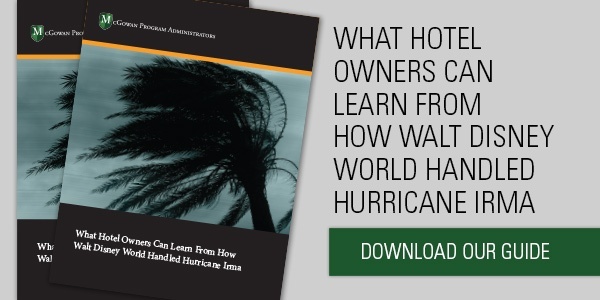Call it a tale of two bugs. In in the first case, a hotel faced a $100,000 judgment because a guest woke up with a bunch of bedbug bites. In the second, a hotel guest who was apparently bitten by a venomous spider — and who almost lost a finger to infection — failed to prove hotel negligence in court.
The difference in the two cases illustrates the challenges for hotels trying to avoid negligence lawsuits, whether the negligence is related to insect infestations, personal injury, or other dangers. In the case of bedbugs, responsible hotel owners fear them the way farmers fear swarms of locusts. They do all they can to banish the risk of infestations. Ergo, bedbug-bitten guests suggest negligent hotel management — which attracts personal-injury lawyers.
Venomous-spider bites pose a comparatively rare risk. To be negligent, a hotel must know the dangerous spider is on the premises, and, importantly, it must neglect its duty to get rid of the bug. Given the rarity of the threat, it’s much harder for a guest to prove negligence.
Thus, avoiding hotel negligence case typically boils down to a simple question: Were you cautious enough? You can never be careful enough to avoid every lawsuit, but you can exercise a pattern of care that will reduce your risk of being found negligent in court. Understanding the basics of hotel-negligence law can help clarify how to reduce your risk.
4 prime components of hotel risk
Most risks are well known to guests and hoteliers alike: Slipping, falling, drowning in pools. Other risks include fires, equipment failures, and assaults on guests. By law, hotels must take reasonable actions to reduce these risks.
If somebody sues your hotel, they must provide evidence of negligence that will stand up in court. These rules vary from state to state but they have four principal components:
- Duty of care: You have an obligation to obey laws and follow standard safety procedures for the industry.
- Breach of duty: The party suing you (the plaintiff) must provide evidence in court that you breached your duty of care, and that there’s a causal link with the injury or damages the plaintiff suffered.
- Proximate cause: The evidence must show that your negligence was the proximate cause, meaning your neglect directly led to the injury.
- Damages: The plaintiff must provide records establishing monetary and other damages that must be repaid.
Thus, an accident or incident must either directly cause the plaintiff’s damages, or the damages must result from risks that the hotel should’ve known about but nevertheless ignored or overlooked.
Key defenses against hotel negligence claims
Hoteliers have several avenues of defense in court:
- Assumption of risk: Your counsel can argue the plaintiff knew the risks and acted anyway.
- Comparative negligence: Some states have laws stating that if the plaintiff played any role in their misfortune, a percentage of their liability can be subtracted from damages awarded.
- Contributory negligence: Other states say the case must be dropped if the plaintiff is negligent in any way.
- Lack of four principal components: All four components of negligence mentioned above must exist.
- Res ipsa loquitur: This legal principle, which means It speaks for itself, holds that the accident is proof of negligence (example: a faulty heating and air conditioning system causes fatal carbon monoxide poisoning). In such a case, your defense team would have to prove something else caused the accident.
- Illegal purpose: A plaintiff breaking the law cannot claim negligence if the crime played a role in their injury. However, they can sue if they can prove negligence unrelated to the crime.
Steps hotels can take to reduce negligence risks
The principles we’ve outlined above are not legal advice. You need guidance from an attorney who has experience in hotel-liability cases and who knows the full breadth of precedents and case law that determine your legal responsibilities.
Once you have this guidance, you can work to establish and enforce safety and accident-prevention programs. These programs should include:
- Ongoing training: It’s not enough to provide safety training for somebody’s first day on the job. It must be ongoing so that safety becomes second nature to your staff.
- Written guidelines: Putting your safety policies on paper ensures everybody has a common understanding of the best ways to bolster safety.
- Enforcement: Written policies can backfire in court if your staff ignores them and provides evidence of negligence the plaintiff can use against you in court. Hence, you have to back up your policies with accountability procedures to make sure rules are followed.
- Security and safety: Video cameras, well-trained security personnel, criminal background checks, and a documented emergency action plan can prevent many mishaps and prepare your staff for the ones that crop up despite your best efforts.
- Risk assessments: Consider hiring a third party to visit your property and scan for potential threats. The Occupational Safety and Health Administration (OSHA) also can assess your risks.
Hotel insurance and risk management
Even if you’ve done everything imaginable to make your hotel safer, you can still be sued. A flimsy lawsuit must be defended in court, at great expense. And your staff can make mistakes that a court finds negligent.
McGowan Program Administrators developed our line of Hotel Umbrella Insurance because standard business liability policies often have exclusions for risks hoteliers face every day. To manage risk effectively, you need an insurance policy with hotel-specific provisions that shield against sky-high legal costs and ruinous damage awards.



